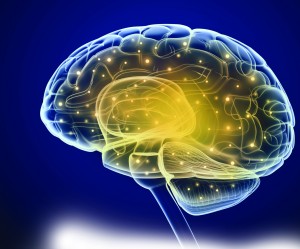 One of life’s greatest fears is the fear of memory loss. Where did I put my keys? Did I turn off the stove? Or in my case, where did I leave my reflex hammer? These types of questions are familiar to all of us, and may make us doubt our memory skills. Recent studies have shown that even subjective cognitive complaints may be a risk factor for memory loss. While the occasional “senior moment” should not necessarily be alarming, regularly forgetting important appointments, or the loss of previously mastered cognitive abilities, should prompt a neurological consultation.
One of life’s greatest fears is the fear of memory loss. Where did I put my keys? Did I turn off the stove? Or in my case, where did I leave my reflex hammer? These types of questions are familiar to all of us, and may make us doubt our memory skills. Recent studies have shown that even subjective cognitive complaints may be a risk factor for memory loss. While the occasional “senior moment” should not necessarily be alarming, regularly forgetting important appointments, or the loss of previously mastered cognitive abilities, should prompt a neurological consultation.
Among health care providers, a neurologist is robably the one best equipped to give you a thorough mental status evaluation. When you see the neurologist, bring an informant who knows you well. The neurologist will perform a complete history and examination, with an emphasis on testing cognition. You will be given tasks of attention, memory, language, executive functioning and clock drawing. The neurologist will likely categorize your performance as either normal or consistent with mild cognitive impairment (MCI). MCI is a condition of cognitive decline greater than expected for age, but with essentially preserved functional activities. MCI may be restricted to memory (amnestic MCI), although other cognitive spheres may also be impaired, either alone (e.g., MCI with executive dysfunction) or in combination (multimodal MCI). MCI may sometimes represent “prodromal Alzheimer disease”, but may also be caused by medications or medical conditions, depression or a sleep disorder. When cognitive deficits are persistent and involve multiple domains and impair daily functioning, the diagnosis then becomes dementia.
The most common type of dementia is Alzheimer disease. Other less common causes include dementia with Lewy bodies, vascular dementia and frontotemporal dementia, with Alzheimer disease often coexisting with vascular dementia. By taking a careful history and performing appropriate diagnostic tests, the neurologist will try to make an accurate diagnosis. Diagnostic testing should include blood work (e.g., vitamin B12 level, thyroid function tests, vitamin D level), brain imaging (preferably an MRI) and sometimes a sleep study. More specialized biomarkers such as advanced brain imaging or spinal fluid analysis is sometimes suggested in complex cases. A neurologist can help you by clarifying the diagnosis and by identifying possibly contributing medications and treating medical conditions. The neurologist may make recommendations such as discontinuing certain medications, starting an antidepressant or treating sleep apnea. Thus, if you are experiencing more than your occasional “senior moment,” make an appointment to see a neurologist. Modestly effective medications such as cholinesterase inhibitors (which boost the levels of acetylcholine) and glutamate antagonists are sometimes employed. Hopefully more effective specific therapies for MCI and dementia will be developed in the near future.
David Silvers, M.D. Board Certified in Neurology, Electrodianostic Medicine/EMG, and Neuromuscular Medicine
Call For An Appointment
561-799-2831
www.GardensNeurology.com
3401 PGA Blvd., Suite 430
Palm Beach Gardens, FL 33410
Check Also
The Latest Technology With Hearing Aids
Many modern electronic devices these days come equipped with Bluetooth technology. This feature lets you …
 South Florida Health and Wellness Magazine Health and Wellness Articles
South Florida Health and Wellness Magazine Health and Wellness Articles




